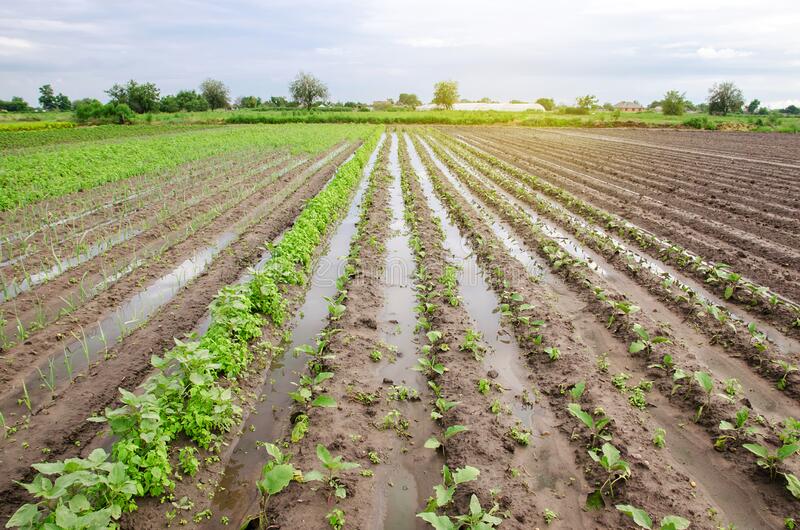Paul Neiffer, The Farm CPA, details some of the Biden administration's 2025 budget plans and how...
Ag Groups Sue to Stop WOTUS Rule

Representatives from 17 industries have filed a lawsuit attempting to overturn the Biden administration’s new Waters of the United States (WOTUS) rule. Among the agriculture groups listed as plaintiffs are the American Farm Bureau Federation, the Matagorda County Farm Bureau, the National Cattleman’s Beef Association, the National Corn Growers Association, the Pork Producers Council, the Texas Farm Bureau and the U.S. Poultry and Egg Association.
National Cattlemen’s Beef Association (NCBA) Chief Counsel Mary-Thomas Hart says they are fighting back against a policy she characterizes as an attack on farmers and ranchers.
“The rule removes longstanding, bipartisan exclusions for small and isolated water features on farms and ranches and adds to the regulatory burden cattle producers are facing under this administration,” says Hart. “We look forward to challenging this rule in court and ensuring that cattle producers are treated fairly under the law.”
The lawsuit was filed in the Southern Texas District Federal Court in Galveston. It states that the WOTUS rule should be thrown out because it conflicts with the Clean Water Act, the U.S. Constitution and Supreme Court precedent.
The Environmental Protection Agency and Administrator Michael Regan are named as defendants along with the U.S. Army Corp of Engineers and several of its officials. Additional plaintiffs include the American Petroleum Institute, the American Road and Transportation Builders Association, the Associated General Contractors of America, Leading Builders of America, the National Association of Homebuilders, the National Association of Realtors, the National Mining Association, the National Multifamily Housing Council, the National Stone, Sand and Gravel Association and the Public Lands Council.
American Farm Bureau Federation (AFBF) President Zippy Duvall says the WOTUS rule is too vague and creates uncertainty for farmers, even those miles away from navigable waters. He expects the judge to throw the rule out and direct EPA to develop a better rule.
“Farmers and ranchers share the goal of protecting the resources we’re entrusted with. Clean water is important to all of us,” Duvall says. “Unfortunately, the new WOTUS rule once again gives the federal government sweeping authority over private lands. This isn’t what clean water regulations were intended to do. Farmers and ranchers should not have to hire a team of lawyers and consultants to determine how we can farm our land.”
According to the NCBA press release, more than 1,700 cattle producers sent messages to the EPA last year opposing the type of regulation the Biden administration announced in December. The Association is particularly concerned about maintaining agricultural exclusions for small, isolated water features, including ephemeral streams that only flow occasionally but are usually dry. NCBA believes regulating these features at the federal level disrupts normal agricultural operations and interferes with cattle producers’ ability to make improvements to their land.
NCBA Vice Chair Gene Copenhaver’s own southwest Virginia cattle operation has a creek that only flows after heavy rains. He says this is the type of feature that would be subject to complex federal regulation if the WOTUS rule is allowed to stand.
“Farmers are stewards of the land and understand the importance of clean water. Unfortunately, this rule lacks common sense and makes our lives more complicated,” Copenhaver says. “I’m proud of NCBA’s work fighting back against this rule and I hope the uncertainty created by WOTUS will soon be a thing of the past.”
NCBA also questions the timing of the WOTUS rule. It was announced two months after the Supreme Court heard arguments in the Sackett vs EPA case. In that case, an Idaho landowner is suing the EPA over regulations requiring him to get a permit before filling wetlands to build a lake house. Many observers believe that the court will rule to limit the EPA’s regulating powers. A ruling is expected soon.
EDITOR’S TAKE:
WOTUS has been a bone of contention with farmers and ranchers for many years. Various interpretations have been offered depending on what administration was in power politically at the time. In addition to the lawsuit referenced in this article, Congress is now looking into the most recent regulatory proposal and is exploring language to clarify their intent once and for all. The real issue is how loosely or narrowly the term “navigable waters” in the Clean Water Act is interpreted. Does a temporary stream of water flowing across a farmers or ranchers field after a heavy rainfall event, qualify? Some say yes and that is a problem. Such interpretations could cost farmers billions in regulatory oversight. More unnecessary regulation would cut into profits and eventually show up as fewer truck sales. Farmers are the original environmentalists. If they do not take care of the land, their largest asset, it will not take care of them or future generations. Common sense is needed to resolve this issue. Lets hope that between the courts and Congress we can finally resolve this matter once and for all!







